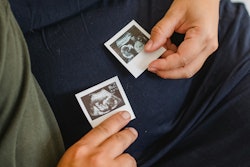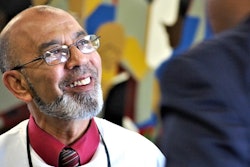From the Eye of the Storm to the Eyes of the Nation
Katrina victims’ health disparities take center stage
By Dr. Rubens Pamies
While Katrina no longer dominates the evening news, the inadequate and negligent response of our government to the New Orleans tragedy presents an unprecedented challenge equal to or exceeding that of rebuilding that city’s infrastructure. Our nation’s health care system has failed. On life support long before the hurricane, the New Orleans’
tragedy accentuates the complete breakdown of the American health care system in caring for our most vulnerable populations. In New Orleans, that means the African-American community, a population in whom chronic illnesses and major health issues are escalating as rapidly as a pneumatic tube in a drive-through bank teller. Widespread poverty in New Orleans’ Black community nearly guaranteed entrapment on roof tops, degradation and suffering in the Superdome and drowning for many. But pre-existing health disparities also created many unnecessary fatalities among the elderly, infirm and chronically ill.
Black people, in general, have much higher rates of diabetes, hypertension, asthma, emphysema, obesity, kidney failure, congestive heart failure and neurological disorders. Diet, lifestyle and cultural differences all play a role, as do the insidious and pervasive psychological aspects of feeling ineffectual and powerless in our society.
Support for a controversial and still unproven theory, which links low levels of chronic stress from racism to increased risk for many health problems, has been accumulating for years. Last May, the strongest evidence yet to support this theory was revealed in a new study by the American Heart Association, which found a link between racism and early stages of heart disease.
Black people are suffering and dying in greater numbers than any other ethnic group in America. We are a nation that’s often described in superlatives — as the most powerful, the wealthiest, the most influential country in the world. How then, do we reconcile that our first-world country is home to many third-world citizens? The United States’ infant mortality rate is a disgrace. Even when you factor in maternal age, income, education and marital status, a Black infant is nearly three times as likely to die as a White infant.
President Bush, Louisiana Gov. Kathleen Blanco and New Orleans Mayor Ray Nagin have all apologized for the inadequate response by their respective levels of government. But who is taking responsibility for the embarrassing level of health disparities among New Orleans’ Black population — or, for that matter, poor people in general?




















